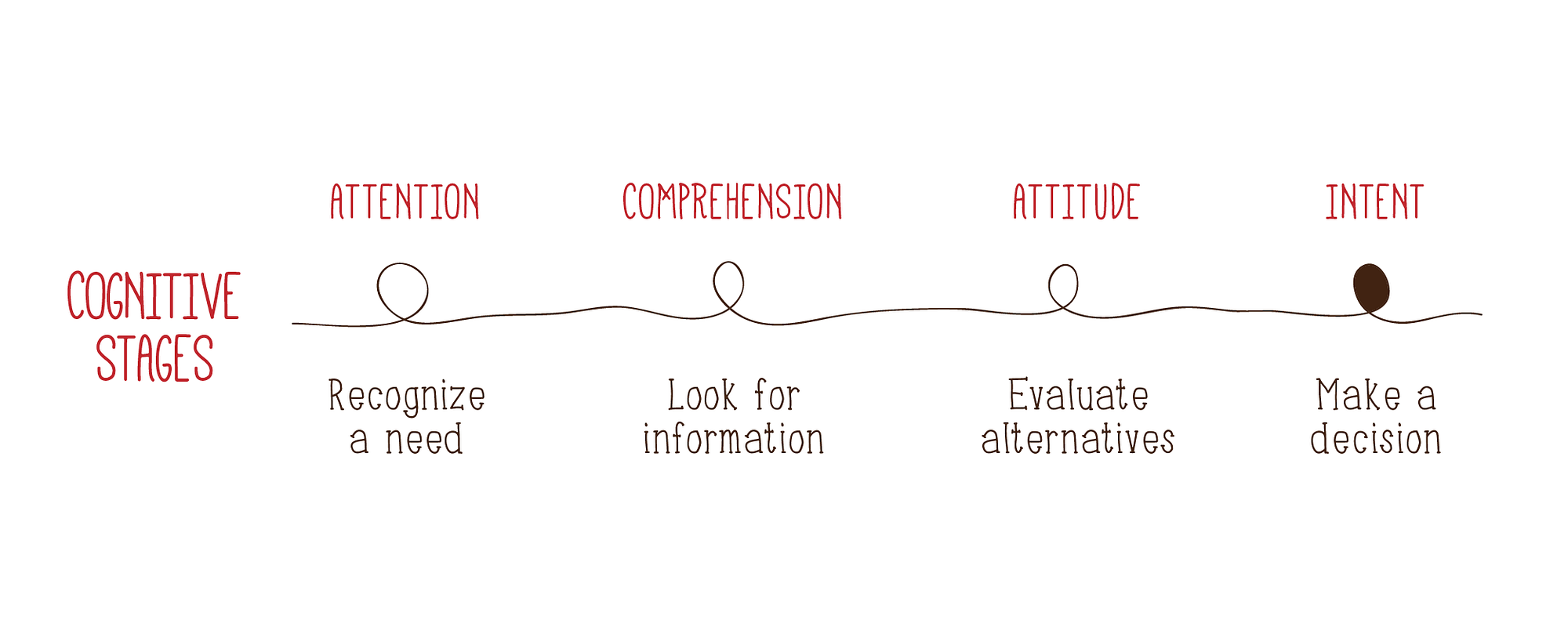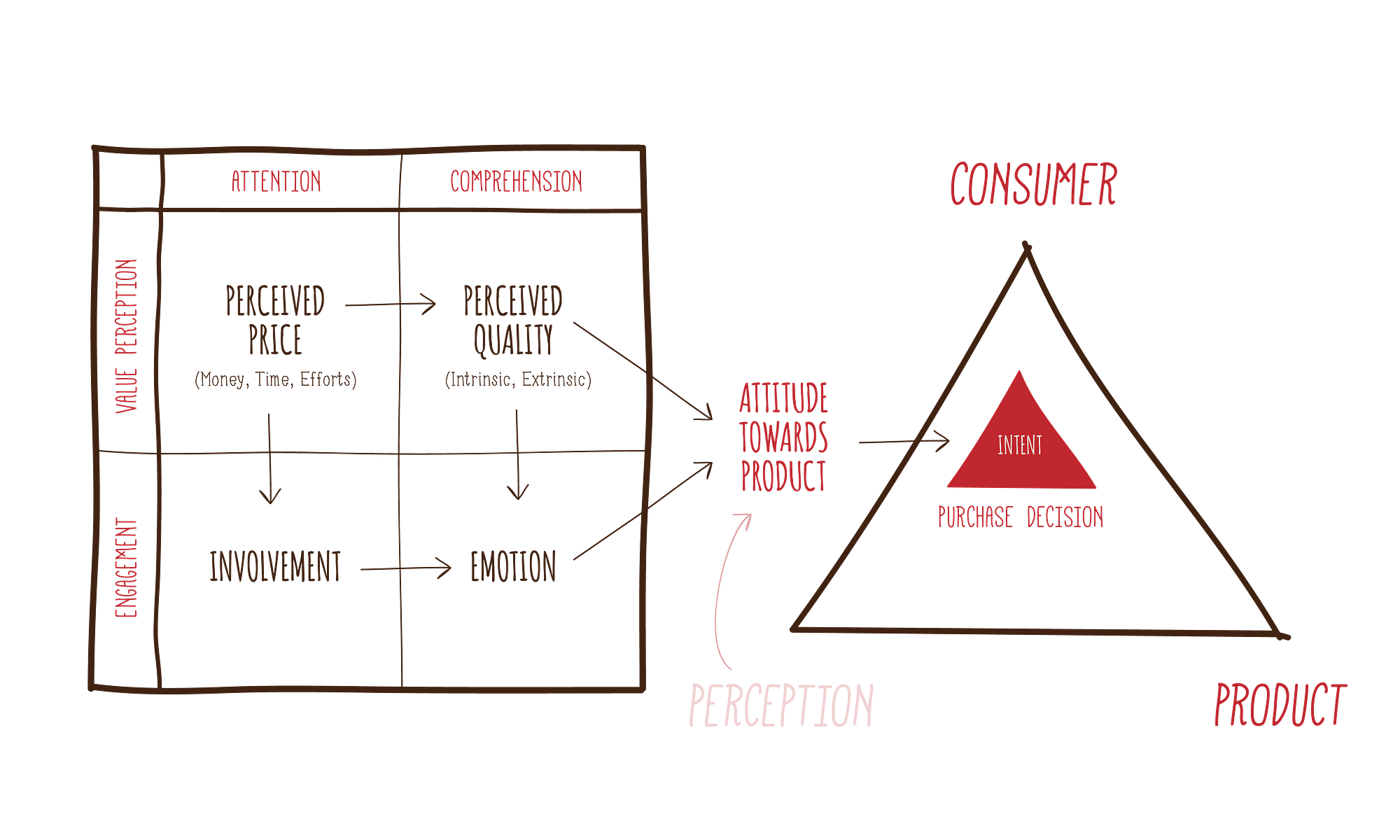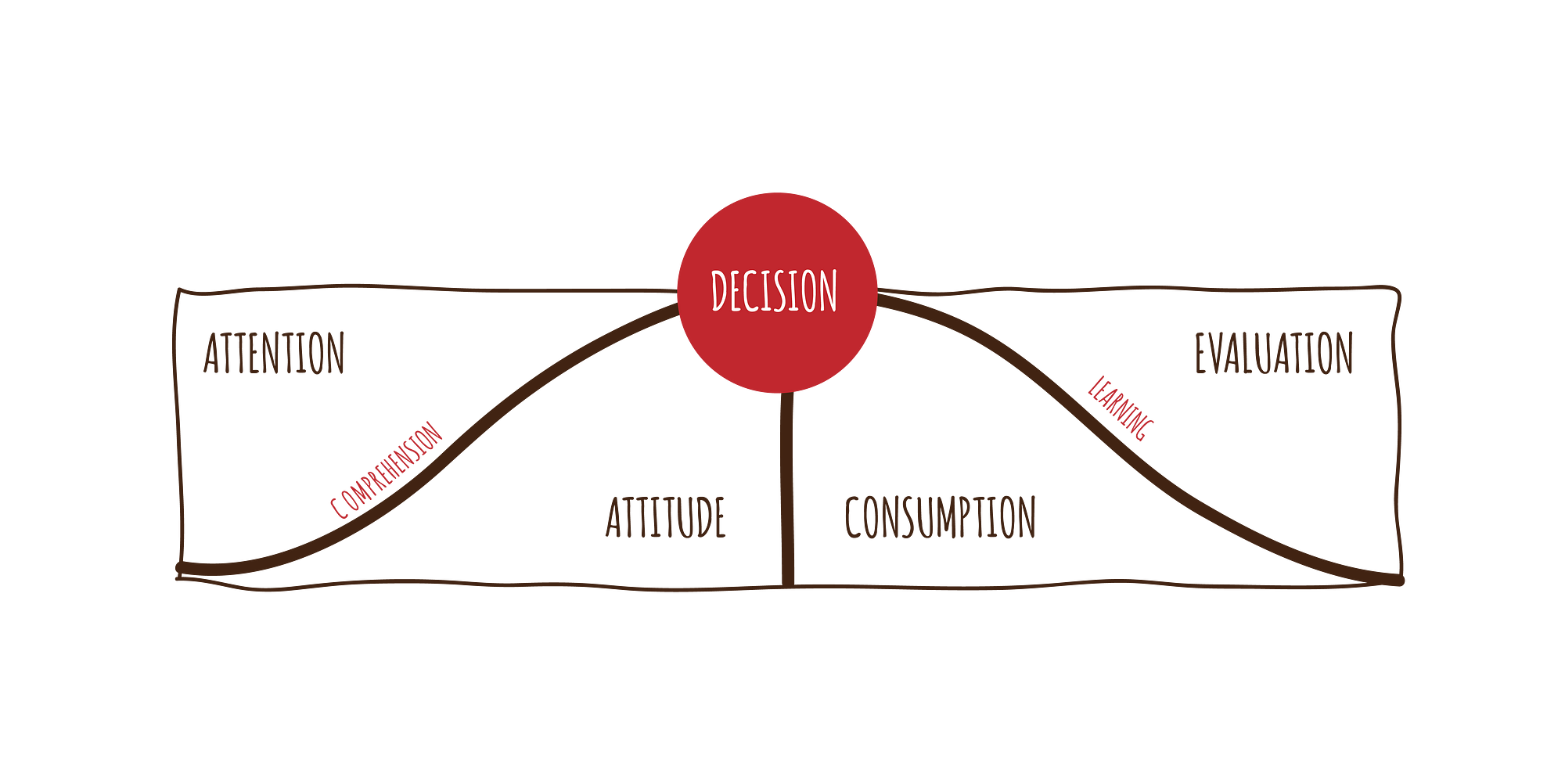THE PSYCHOLOGY OF PRODUCT PACKAGING
- Packaging acts as a gateway to a product.
- If the consumers needs can be potentially satisfied by this product, then it influences their buying behaviour.
- This feeling is a result of choices made across several cognitive stages 0 why most consumers find it to be complex and overwhelming at times.
PACKAGING AS A STIMULUS:
-We can treat the consumer as a subject who gets exposed to a product on the self, wrapped in its packaging, as the stimuli:
DECISION MAKING ALONG PATH TO PURCHASE:
- Ian Pavlov's classical conditioning theory suggests that product packaging directly influences consumers perception of the product.
"Perceived value may be seen as an 'overall assessment of the utility of a product based on perceptions of what they receive (quality) versus what they give (price).
- After a choice is made, and consumer decides to make a purchase they continue to evaluate their decision while enjoying the product experience.

PERCEPTION BUILDING ACROSS THE PATH:
- Consumers seek input from their reference points: friends, family, colleagues, reviews and several other means.
- Filtering information to ind the right signals is difficult and is even harder to retain this information.
- There are evidences showing that consumers retain only the information that either appeals to them emotionally or one that strengthens their beliefs.
- When exposed to conflicting signals, consumers get confused and tend to exhibit impulse buying behaviour. - They then rely on product packaging to provide visceral cues which enable them to skip through several decision making stages.

An explanation:
- Throughout the decision making process they look for cues to validate their won expectations.
- If consumers spend time in validation and available cues indicate a superior quality they often create emotional ties.
- When they perceived value of a purchase decision is very high (for its financial or social implications), consumers are very cautious.
- The degree of the involvement is subject to consumers personal, psychological and social contexts hence the extent of their pursuit can't be determined by their willingness to engage is certain.
- When perceived value is low (for routine decisions) consumers tend to make impulsive decisions - explains why 70% of supermarket decisions are unplanned.
https://medium.com/digital-packaging-experiences/the-psychology-of-product-packaging-29bf52ad6220


No comments:
Post a Comment